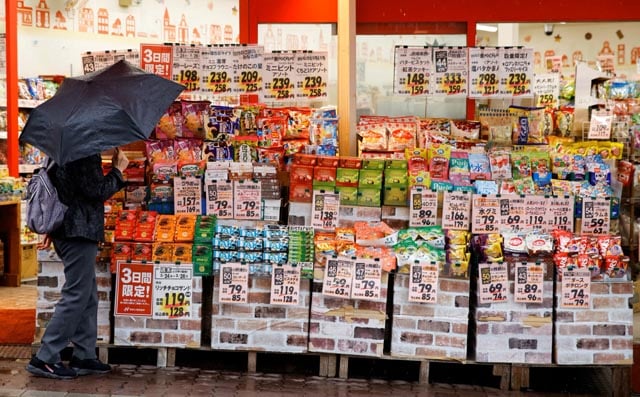News Flash
News Flash

TOKYO, June 20, 2025 (BSS/AFP) - Japan's core inflation rate accelerated to 3.7 percent in May, official data showed Friday, posing a threat to Prime Minister Shigeru Ishiba's leadership ahead of July elections.
Rice prices were more than twice as high compared to a year previously, despite the government releasing its emergency stockpile of the staple grain.
Frustration over inflation threatens to deal a blow to Ishiba's ruling Liberal Democratic Party next month, when an election for parliament's upper house is due.
Friday's data, which excludes volatile fresh food prices, beat market expectations and was up from the 3.5 percent year-on-year rise logged in April.
Prices rose for a variety of food products, including non-fresh items, ranging from coffee to chocolate.
Electricity bills were 11.3 percent more expensive, and gas fees rose 5.4 percent.
Ishiba has pledged cash handouts of 20,000 yen ($139) for every citizen -- doubling it for children -- to help households combat inflation ahead of the July elections.
The race is crucial to Ishiba after public support for his government tumbled to its lowest level since he took office in October, which observers say was partly caused by a surge in inflation and soaring rice costs.
Rice shortages, caused by a supply chain snarl-up, mean the price of the grain was up 101 percent in May, compared to the eye-watering 98 percent rise seen in April.
The government began releasing stockpiles in February in an attempt to drive down prices -- something it has only previously done during disasters.
A mosaic of factors lies behind the rice shortages, including an intensely hot and dry summer two years ago that damaged harvests nationwide.
Since then some traders have been hoarding rice in a bid to boost their profits down the line, experts say.
The issue was made worse by panic-buying last year prompted by a government warning about a potential "megaquake" that did not strike.
Going forward, US tariffs are expected to weigh on Japan Inc, with economists predicting a slowdown ahead.
Intensifying fighting between Iran and Israel was also adding pressure for energy prices to head north, posing a further risk to the Japanese economy.
Earlier this week the Bank of Japan kept its interest rates unchanged and said it would taper its purchase of government bonds at a slower pace, as trade uncertainty threatens to weigh on the world's number four economy.